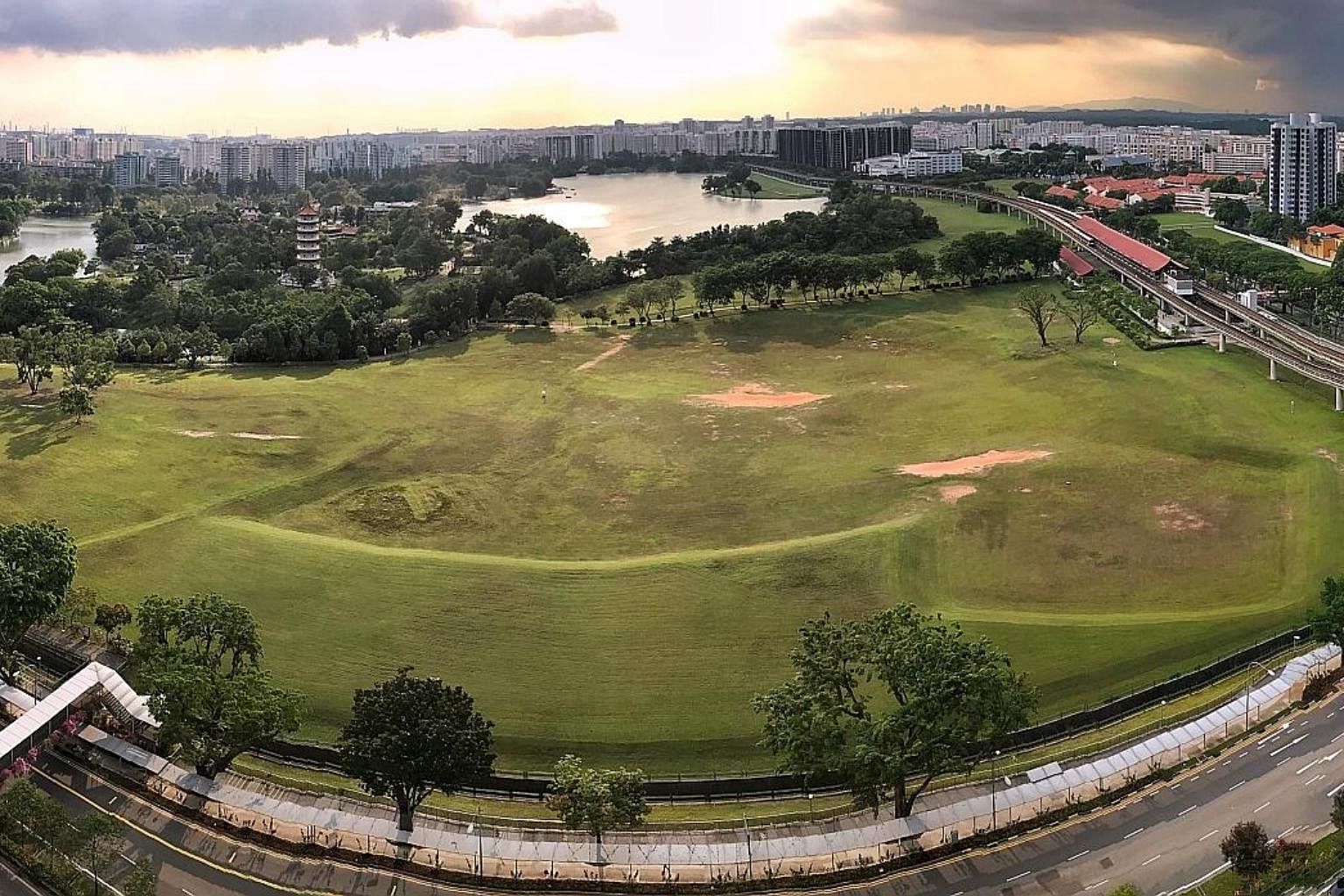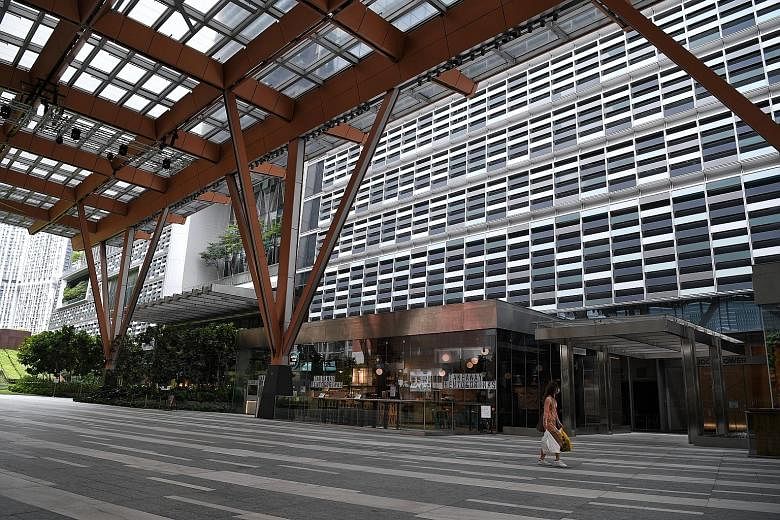The Covid-19 pandemic will likely accelerate the shift towards decentralising the Central Business District (CBD) by bringing workplaces closer to homes while increasing recreational and residential options in the city centre, industry observers say.
"Before the pandemic, global business districts were in a high-stakes race to attract talent, new business and capital. For the most part, this will continue, albeit under new rules," Mr Marc Lhermitte, a partner at Ernst & Young Advisory, France, said.
The pandemic has raised awareness of the need for risk management and business continuity planning, while lockdowns and forced telecommuting have revealed that some functions within organisations can operate from home.
Showsuite Consultancy chief executive Karamjit Singh said: "As a result, we expect to see a fundamental shift in corporate planning, which would have flexible and remote working options to better manage talent, costs and risks. Some major global technology companies have already announced such policy shifts on an indefinite basis."
This does not mean an end to corporate offices and the CBD, but downsizing may be on the cards.
Companies will likely still invest in smart offices but take up less floor space if the work-from-home trend gains traction, he added.
More owners of old CBD buildings in Singapore could consider taking up incentives to redevelop these into hotels and residential spaces, Mr Singh said.
A spokesman for the Urban Redevelopment Authority (URA) said its scheme to encourage owners of older office buildings in some parts of the CBD to redevelop the properties into mixed-use projects is well placed to accommodate this trend.
The pandemic is not likely to affect developers' existing planning applications, analysts say.
"Given the high cost associated with the planning approvals process and land acquisition in Singapore, it is highly unlikely that any developer will drop their development plans," said Mr Jonathan Denis-Jacob, associate director of the advisory group at Colliers International.
"Developers usually have an investment horizon of at least five to seven years. But those that have yet to submit their planning applications may decide to postpone their plans until the pandemic and economic situation have stabilised."
But hotel and retail developments are the most affected in the near term, so developers may delay plans for these projects, he added.
The URA said it is closely monitoring the pandemic's impact on businesses' office space requirements.
"Companies will re-evaluate the size and function of their office spaces and may even decentralise some functions to satellite locations to reduce the need for long commutes or to enable employees to work from home," Ms Karen Tham, managing director of master planning at Surbana Jurong, said.
"Future office design should also allow firms to keep groups of staff separate if needed, to contain transmission in case of an outbreak."
Even as office design evolves, buildings and skyscrapers are not likely to become redundant.
A number of Guoco Tower's office tenants, particularly tech firms, were already offering work-from-home options before the pandemic but physical spaces remain "imperative for effective collaboration and brainstorming", said Ms Valerie Wong, general manager of asset management at GuocoLand.
"This is especially so for teams involved in projects, design and sales, where there is a need to ensure speed-to-market in areas such as product development and innovation. Certain industries and sectors like trading, finance and even legal services still require a physical office to remain productive."
Hygiene should also be factored into office designs. Smart buildings, such as Guoco Tower, have two standalone air-handling units on each floor to prevent cross-contamination between floors, Ms Wong added.
The CBD will still be relevant as fallout from the pandemic is expected to be temporary.
Mr Denis-Jacob said: "After-work Zoom happy hours are fun for a few weeks when the entire world is doing it for the first time, but are unlikely to remain the main form of social interaction in the long run. In-person... meetings remain most effective than e-meetings."
Case in point: In the aftermath of the Sept 11 attacks in the US, there was a drop in CBD demand for several months and lower floor rents exceeded those for top floors for the first time in the country's history. But that fear slowly dissipated and demand for top-floor CBD space recovered a few years later, he said.
"It is in human nature to forget when things return to normal and we expect this will happen again post-Covid-19."
Rethink planning of second CBD: Analysts

Some analysts believe now is a good time to pause and rethink the planning of Singapore's second Central Business District (CBD) in Jurong in the light of new trends for workplaces that are set to emerge after the pandemic.
The development of large masterplanned areas such as the Jurong Lake District could be delayed temporarily due to the coming recession and lower occupier demand in the near term, said Mr Jonathan Denis-Jacob, associate director of advisory at Colliers International.
How long a delay will depend on whether work-from-home arrangements become permanent and if the downturn is protracted, he added.
"That said, Jurong Lake District and other masterplanned areas are part of the Government's long-term urban development vision and land supply strategy, so we don't expect plans to be materially affected by Covid 19," he noted.
An Urban Redevelopment Authority spokesman said Jurong Lake District is being developed over the next 20 to 30 years, so flexibility has been built into the masterplan to cater to changing economic and social needs.
"A substantial proportion of the masterplan for the Jurong CBD consists of 'white site' land parcels to cater for maximum flexibility in terms of land use," said Mr Michael Leong, director of SAA.
SAA is a member of the Surbana Jurong Group and the architect involved in the Jurong Lake District masterplan.
He added that the pandemic will likely not result in substantial shifts in office, retail and industrial spaces, but there will be increased preference for virtual working and e-commerce, and greater need for logistical services.












